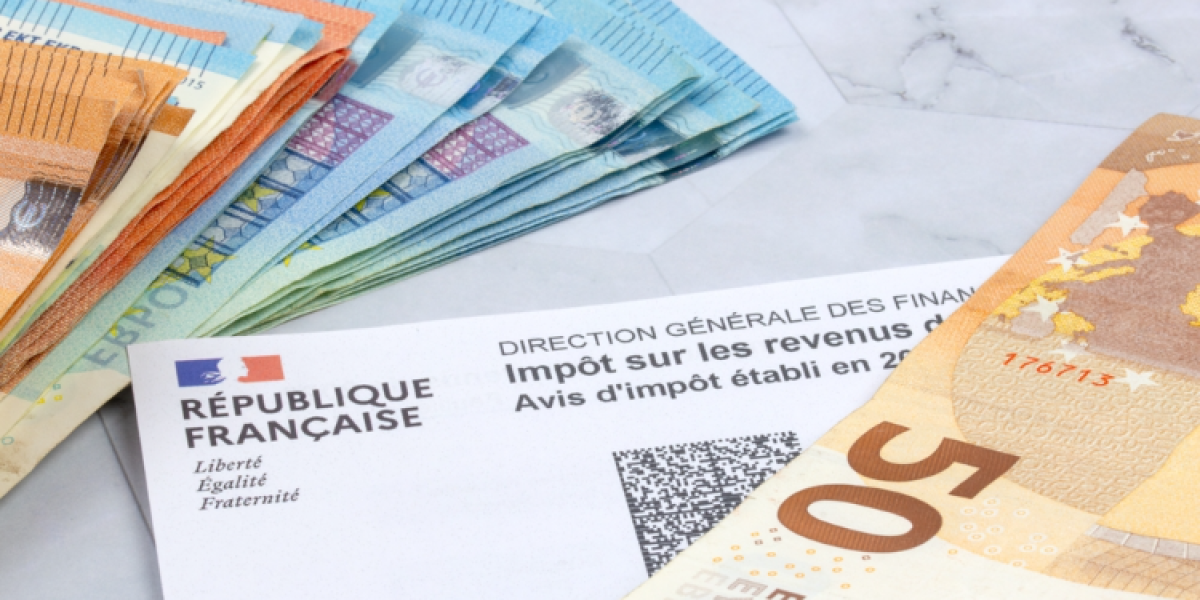
With over half of the French population asserting their tax burden is excessively high, the government is positioning the looming tax increase as "a necessary evil." This hike, seemingly inevitable and more extensive than expected, aims to bridge the significant public deficit. Both expatriates and those planning to move to France are keeping an eye on these developments. How might this increased tax impact their future life plans?
Inevitable tax increases on the horizon
Since presenting its 2025 budget on October 10, the Barnier government has come under sharp criticism. In an effort to shore up public finances, the government has outlined a plan to save 60 billion euros. This strategy aims to reduce the public deficit to 5% by 2025 and to 3% by 2029, aligning with European regulations. Currently, France's deficit is projected to hit 6.1% of GDP. The savings are expected to come from a reduction in public spending by 40 billion euros and an increase in taxes totaling 20 billion euros. These measures build on the previous government's commitment to save 10 billion euros.
Notably, income tax will remain untouched. The government has opted not to freeze the progressive tax scale—a move that would have increased the taxable base and generated an additional 3.7 billion euros in 2025 but also moved 530,000 non-taxable households into the tax bracket. Instead, the 2025 tax scale will be adjusted for inflation, similar to the 2024 scale. However, other sectors may see tax increases. What could these changes mean for expatriates and future expatriates?
Tougher real estate taxation
Real estate investors are now in the crosshairs of new fiscal measures. Lawmakers have approved an amendment that raises the capital gains tax on real estate sales to 30%. Under the current framework, sellers of undeveloped but buildable land are taxed at 19% on profits, based on the land's purchase value. The newly passed amendment increases this rate significantly.
Another legislative change targets exemptions from the capital gains tax. Previously, owning a primary residence for just six months qualified sellers for this exemption. With the new amendment, this qualifying period extends dramatically to five years. However, certain exceptions are in the works, such as when the sale is to fund the purchase of another primary residence. These adjustments will necessitate that foreign property owners reevaluate their investment strategies, as real estate continues to be a preferred investment among expatriates.
Potential increase in museum and leisure taxes
Are museum visits becoming more expensive soon? On October 24, right-wing lawmaker Philippe Juvin proposed a 10% increase in the VAT on leisure activities, which currently stands at 10%. This hike could boost state revenue from sales of leisure products and activities by an additional 20%. The proposal is set to be debated in Parliament. It would impact a range of recreational and cultural activities, including museums, historical sites, amusement parks, and park visits, potentially raising ticket prices by €1 to €5 for tickets priced between €10 and €50.
While the measure has garnered some political support, public opinion remains divided. Though the proposed increase might seem minor, critics are concerned about its cumulative financial burden, particularly for families. Expatriates and those planning to move abroad are also recalculating the costs of engaging in cultural activities, which will likely increase. Some museums, still reeling from the impacts of the health crisis, fear this could deter visitors further.
However, there is a faction that supports the tax increase, including some expatriates, who argue it's preferable to a general tax bracket rise. They contend that while the tax on leisure and cultural activities affects a broad demographic, it remains a targeted measure. These proponents, though not the wealthiest, are willing to absorb a slight increase in costs to support their cultural pursuits, maintaining that "the money has to come from somewhere."
Possible price hike for Airbnb rentals
Airbnb rentals could be facing a price increase. On October 24, finance committee members voted in favor of imposing a 10% VAT on Airbnb rentals. This proposed tax, akin to the recent adjustments in museum and leisure activity taxes, would directly influence rental pricing upon enactment. This development represents a challenging turn for landlords who are already navigating numerous regulatory restrictions on their operations. Both foreign and local visitors might see higher room rates if this measure passes, making their travel and accommodation more costly.
Gas boiler taxes to rise
Despite the abandonment of the proposed increase in the electricity tax, the tax hike on gas boilers was approved. Quietly included in the 2025 Finance Law, this tax on boilers will jump from 5.5% to 20% next year. According to government estimates, this increase is expected to generate 200 million euros in revenue. The rise is also a move to align with European legislation. Consumers purchasing new boilers in 2025 should anticipate higher prices due to this significant tax increase.
Proposed "Candy Tax" under consideration
Although it's not included in the 2025 budget, a new "Candy Tax" on sugary products is currently being explored within the social security budget framework. Lawmakers are contemplating a tax increase that would scale with the sugar content per liter or kilogram in ultra-processed products. The expected result? Higher prices for consumers. However, proponents of the tax argue that it serves a noble purpose: enhancing efforts to prevent overweight and obesity issues. The aim is to incentivize healthier choices among the population.
Flat tax retains its ground amidst controversial debate
The "single flat-rate levy (PFU)," a hallmark of Macron's first presidential term, faced a potential increase recently. Established in 2018, the flat tax aims to lower the taxation on financial capital income to foster investments and savings, applying a uniform 30% rate—12.8% for income tax and 17.2% for social levies—across various non-real estate capital incomes, including pension savings plans (PER), stock savings plans (PEA), and life insurance, without considering fiscal reference income or tax brackets.
During the night of October 16 to 17, an amendment by the left proposed increasing this rate to 33%. Surprisingly, the far-right National Rally, typically opposed to the PFU, sided with the government to defeat this proposal, citing concerns over the potential impacts on small investors and business owners' savings.
The survival of the flat tax at its current rate is crucial for investors and foreign residents, who could see reduced returns, particularly those yet to reach the eight years of savings necessary for a tax reduction. Given this uncertainty, tax experts are advising expatriates to reassess and diversify their investment strategies, especially in life insurance, a favored option that may become less appealing.
Tax increases: Implications for expats
As France contemplates numerous tax increases, the potential impact on its appeal to foreign talent is under scrutiny. Both expatriates and locals are closely watching the unfolding debates, though it's premature to predict the full effects of these fiscal changes. Despite the potential deterrents, indicators suggest that France will continue to attract substantial foreign investment; in 2023 and 2024, it ranked as the most attractive country in Europe for investors. However, the real test will be how foreign workers adapt to the increased tax burdens. While the nation draws significant capital, it continues to grapple with its reputation as a high-tax environment, a perception that may influence the decisions of prospective expatriates and investors.



















